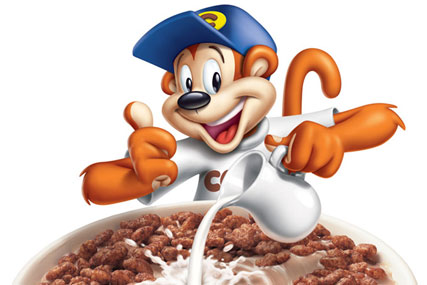
The cereal manufacturer is discontinuing its Coco Pops Straws and Coco Pops Creations variants.
The decision to pare back the range marks a retreat for Kellogg, which had looked to build on the popularity of the Coco Pops brand with the launch of Straws in 2005. The crisp cylindrical wafers lined with chocolate were designed to encourage children to ‘slurp' their milk before eating the straws. It also added ‘mix and match' cereal Creations in 2007.
The launch of Straws was backed by an ad campaign featuring animated brand character Coco the monkey. Kellogg's intention was to target children who had shunned other breakfast cereals by giving its product a fun twist.
The packs carried the message ‘If you think breakfast cereal sucks, you're absolutely right. With Coco Pops Straws you suck the milk and munch the straw.'
Kellogg will retain several other extensions of the original Coco Pops product. These include Coco Pops Moons & Stars, Coco Pops Rocks and Coco Pops Mega Munchers.
Kellogg's Coco Pops ach-ieved sales of ?46.3m in the UK last year, according to Nielsen. However, this was a decline of 0.2% in a category that grew by 5.8%.
Separately, this month Kellogg is launching Krave into the breakfast market. The company claims that its target age group for the product, 16- to 25-year-olds, has not previously been a focus for cereal manufacturers.
The cereal crispy shells with a chocolate hazelnut centre will be supported by a ?4m marketing push encompassing Facebook and Twitter, with activity at music festivals and universities.
Kellogg is also set to slash the level of salt in its most popular cereals, including Coco Pops and Ricicles (falling by 33%), Corn Flakes and Rice Krispies (down by 30%). From March, Kellogg's Frosties and Crunchy Nut recipes will contain 23% less salt. The reduction follows pressure from the Food Standards Agency and campaigning health groups.
The company forecasts that the change will decrease Britain's annual salt intake by about 300 tonnes. It will also ensure that none of Kellogg's most popular cereals is classed as ‘red' (high) for salt content under the FSA's traffic-light food-labelling scheme.



_1.jpg)
.jpg)
